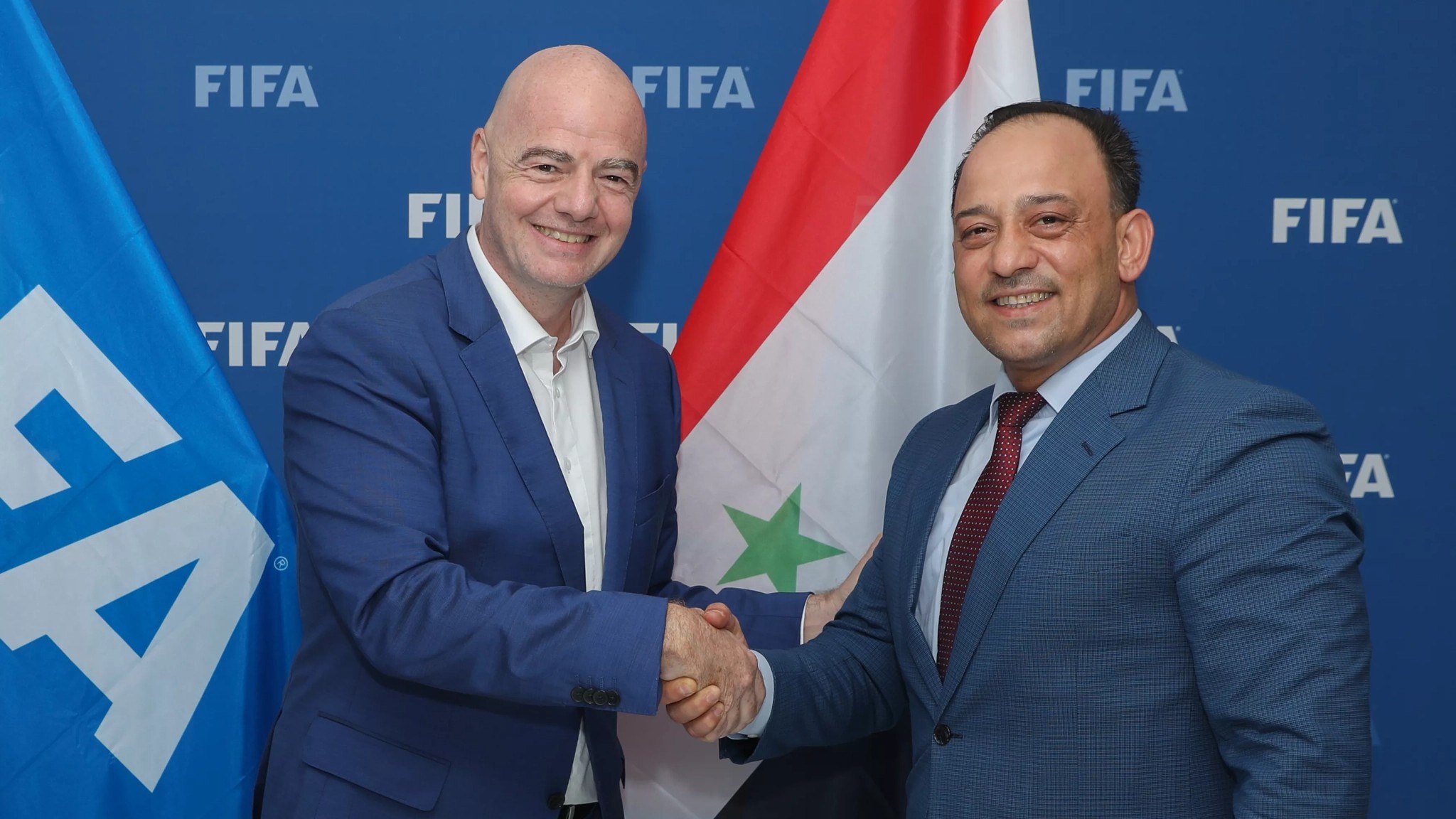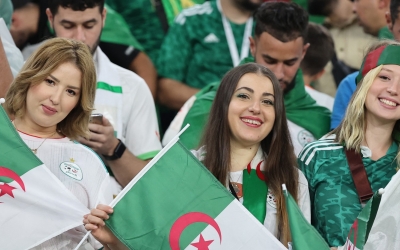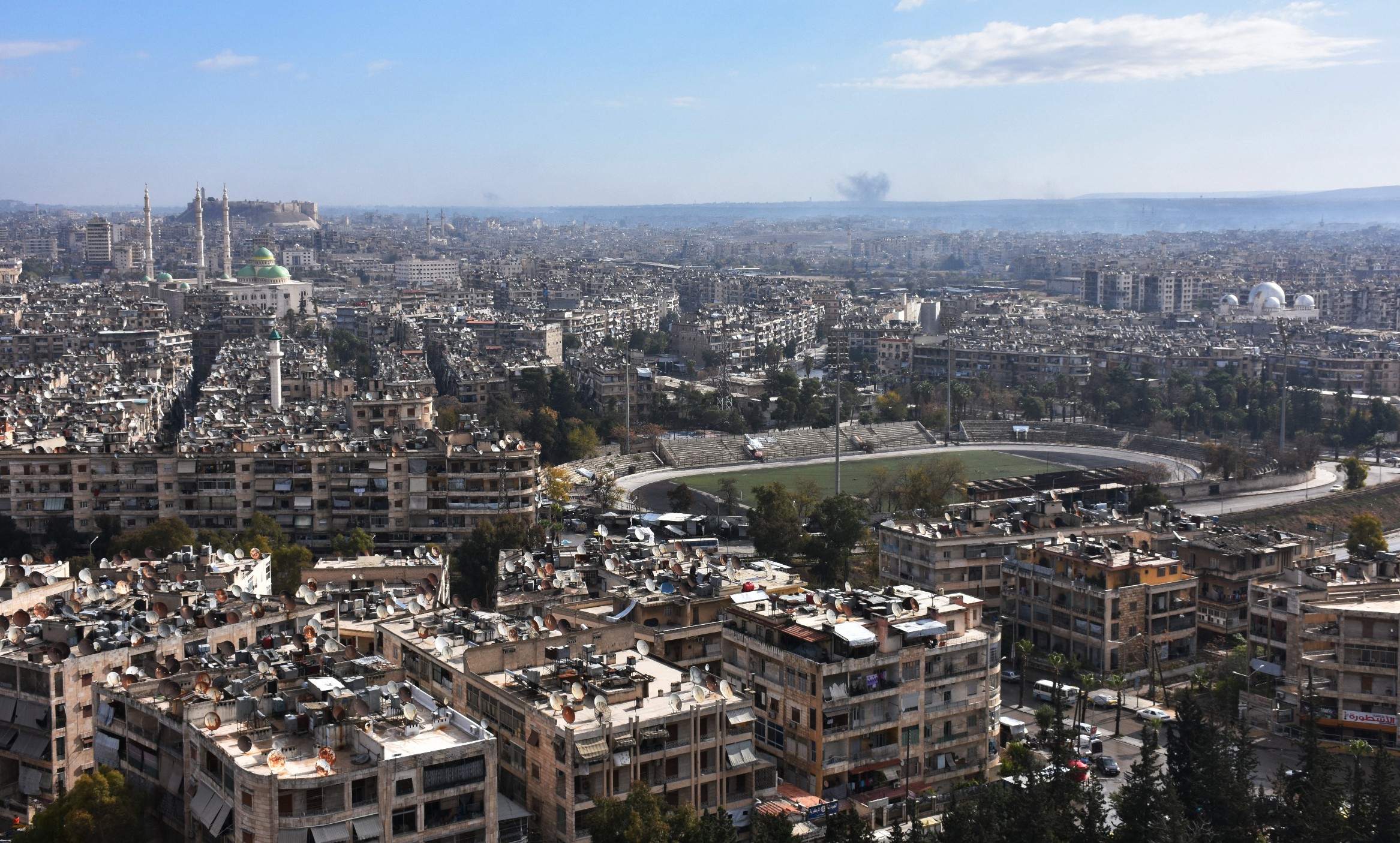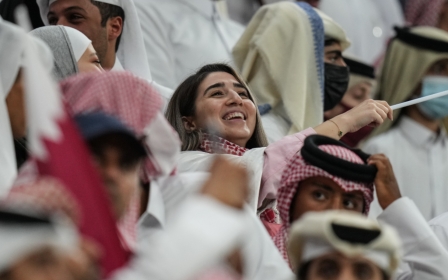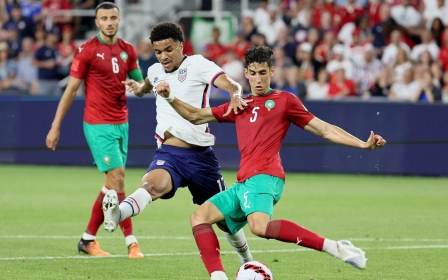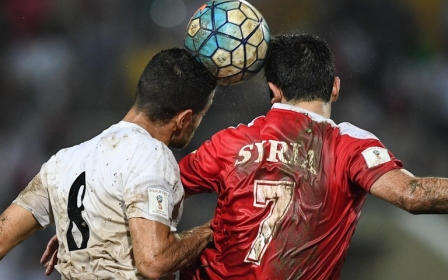Syria: Fifa delegation's visit condemned by displaced footballers

When protests against Syrian President Bashar al-Assad began in 2011, Samer al-Kurdi, a footballer for Al-Karamah in the central city of Homs, did not know he would lose everything.
Kurdi left Al-Karamah, which translates to "dignity", to join the demonstrations and demand dignity.
Abd al-Basset al-Sarout, the club’s goalkeeper, joined him in trading crowds of fans in the stands for crowds of protesters in the streets of Homs.
'The Syrian Football Association is just a political face of Assad, and the FIFA plan is a betrayal of the footballers who were arrested and killed'
- Samer al-Kurdi, Syrian footballer
Dozens of footballers retired from the sport, angry at the violent crackdown on protesters by Assad’s forces, which descended into a grinding civil war, devastating the lives of those in Homs and across Syria.
Attacks by the Syrian authorities and its allies displaced millions in the north of the country, including Kurdi and Sarout. The latter was killed in 2018.
New MEE newsletter: Jerusalem Dispatch
Sign up to get the latest insights and analysis on Israel-Palestine, alongside Turkey Unpacked and other MEE newsletters
Kurdi still remembers how the football stadiums he loved were destroyed, as pro-Assad forces used tanks and missile launchers to target opposition-controlled areas.
Syria has not been allowed to host international matches in those stadiums for the past decade due to the ongoing war.
But that may be set to change after football’s governing body Fifa recently announced it would carry out a new “security assessment”, sparking uproar among activists and former athletes.
Fifa sends delegation despite sanctions
Earlier this month, Fifa said in a statement that it planned to send a joint delegation with the Asian Football Confederation (AFC) to the Syrian capital Damascus to explore the possibility of holding international friendlies in the country.
It followed a meeting two weeks ago between Fifa President Gianni Infantino and Syrian Football Association (SFA) President Salah Edeen Ramadan in Doha, in which they discussed developing football infrastructure in the war-torn nation.
The plan comes despite the Syrian government and its officials still being under widespread western sanctions for their involvement in human rights violations against civilians, including athletes.
“From March 2011 to September 2022, 199 civilian athletes, including two children, were killed by pro-Assad forces,” the France-based Syrian Network for Human Rights (SNHR) told MEE.
“At least 497 athletes [were] arrested in the same period including 11 children and five women,” it added. “Two hundred and seven athletes remain detained and forcibly disappeared."
'Fifa wants to reconcile with the Syrian regime, which killed and arrested footballers, imprisoned them and destroyed their stadiums'
- Abdul Karim al-Halabi, ex-footballer
Fifa did not directly answer MEE's questions about whether its plan violated western sanctions, and whether it would investigate the fate of missing players. “Any further updates will be communicated in due course,” the governing body said.
Peter Stano, the lead spokesperson for foreign affairs and security policy at the European Commission, told MEE: “The EU sanctions which are still in place are targeted against the Assad regime and his supporters with the aim to prevent them from receiving financial funds and political recognition. The EU sanctions are binding for EU citizens and EU companies.”
Stano added that organising sports events was not prohibited, as long as the financial proceeds did not go to the Assad government or individuals sanctioned by the EU.
The US Treasury, which has also sanctioned Damascus, did not respond to a request for comment.
'Incredibly problematic'
A sports journalist in Damascus told MEE that the proposal would have tangible results, helping both Syria and Fifa’s image in helping a war-ravaged country.
“Syrian teams need financial support... to improve their stadiums, to be able to suffice themselves and their footballers,” he said.
Fifa says that with its delegation, it aims to send a message of "hope" to the Syrian people. But for Fadel Abdul Ghany, the chairman and founder of the SNHR, that would be better served by the governing body meeting the families of detained footballers.
“Fifa could put pressure on the Syrian authorities to release the detained footballers and prevent the arrest of athletes because of their political orientation,” he told MEE. “Syrian security controls footballers, and only allows Assad loyalists to be among the sports teams.”
The joint delegation will be the first in Syria since 2012. The national team still competes in international matches but is unable to host home games.
Critics view a reversal of the ban as an attempt by Assad's government to rehabilitate itself following years of isolation and sanctions.
“This is an incredibly problematic move on the part of Fifa as it basically sends a message, loud and clear, that it deems Syria safe enough, a notion that continues to be disproved with every indiscriminate attack and every new case of arrest and enforced disappearance,” Hiba Zayadin, a senior researcher on Syria at Human Rights Watch (HRW), told MEE.
“Fifa’s plans to support the SFA in rebuilding football infrastructure also ignores research conducted on the Syrian government’s [co-option] of humanitarian assistance and reconstruction funding to fund its human rights abuses.”
'Violating human values'
For Abdul Karim al-Halabi, a displaced activist and former footballer for Al-Ittihad in Aleppo, it is not a matter of violating international sanctions, but of "violating human values".
“FIFA understands that pro-Assad forces have used al-Hamdaniya Stadium and Aleppo Stadium to bomb children in the eastern Aleppo neighbourhoods, yet it now wants to repair these stadiums,” he told MEE.
Syrian government forces also used the Abbasiyyin Stadium in Damascus to bomb neighbourhoods in eastern Ghouta, according to local activists.
“Al-Bassel Stadium in the Baba Omar neighbourhood of Homs was a tank barracks and the municipal stadium adjacent to the Military Security Branch in Homs was turned into a detention centre,” Kurdi said.
Stadiums on the Syrian coast were turned from government detention centres to sheep farms, local media has reported.
“Fifa wants to reconcile with the Syrian regime, which killed and arrested footballers, imprisoned them, and destroyed their stadiums,” Halabi said.
“Damascus is using all means to end its political isolation, including football, although it’s failing in managing matters, including dealing with footballers,” Kurdi added.
He was referencing sporting authorities expelling ex-footballer Firas al-Khatib, under allegations of violating its values. Khatib met Assad in 2017 when he returned to the Syrian national team after leaving Al-Karamah in 2012 and spending years in exile.
"The Syrian Football Association is just a political face of Assad, and the FIFA plan is a betrayal of the footballers who were arrested and killed, and the other players who stood against injustice," Kurdi said.
This article is available in French on Middle East Eye French edition.
Middle East Eye delivers independent and unrivalled coverage and analysis of the Middle East, North Africa and beyond. To learn more about republishing this content and the associated fees, please fill out this form. More about MEE can be found here.


